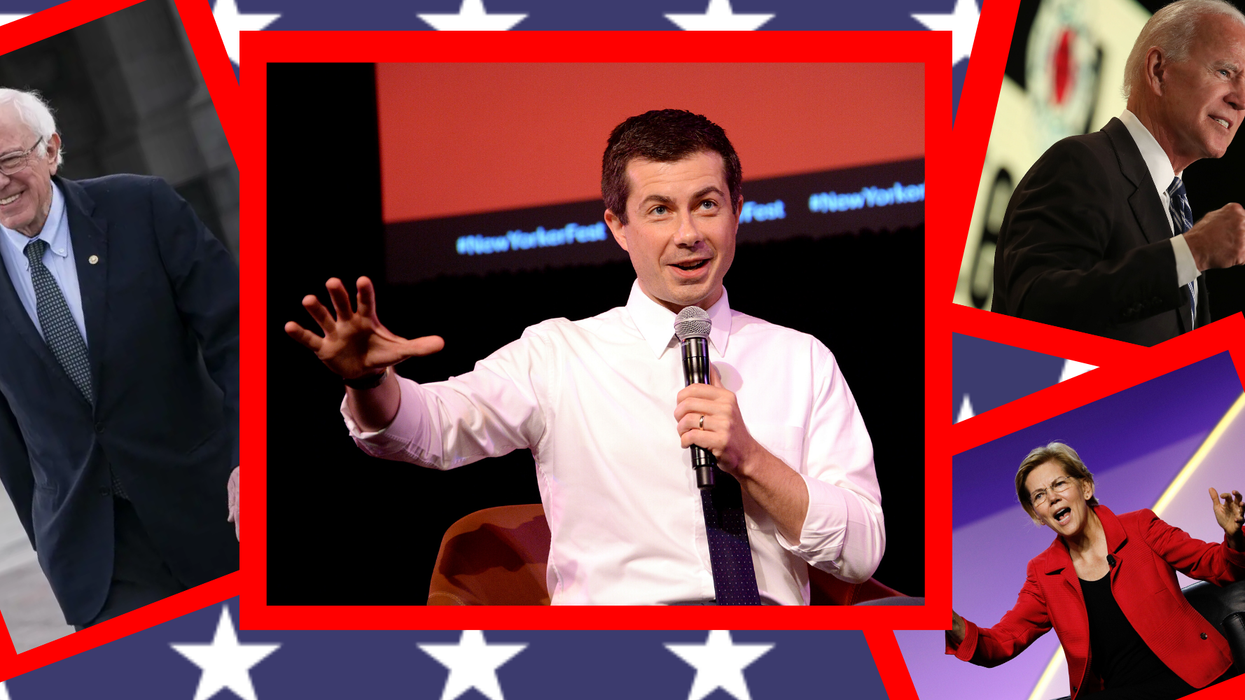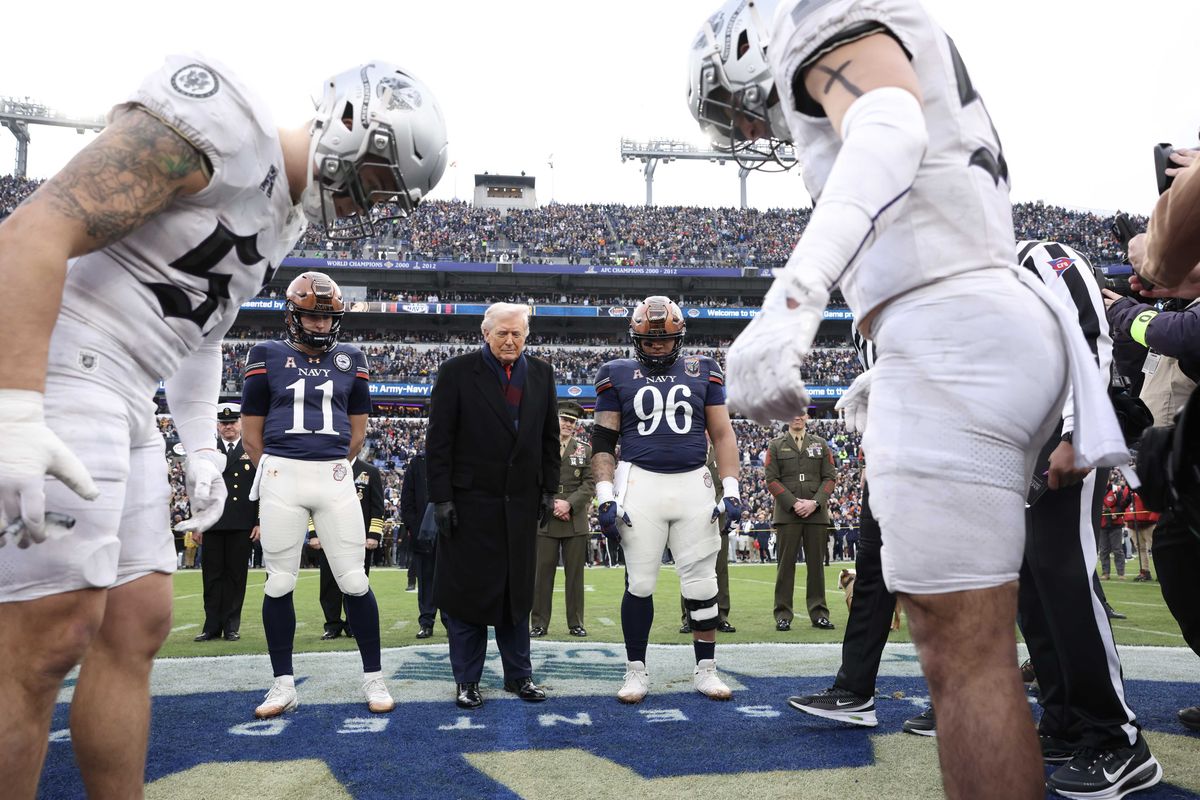News

Getty
1. The Democrats look utterly ridiculous
Democrats have (rightly) spent a lot of the past three years emphasising the need for fair and transparent elections, investigating Russian interference and targeting voter suppression in states like Georgia and Florida. But Iowa has proved that, sadly, they don’t have their own house in order. Votes being decided via coin toss in 2020 is an embarrassing sight and the malfunctioning Shadow app delayed results by over 24 hours. If they can’t conduct their own polls properly, why should voters have confidence in the Democratic National Committee?
2. Mayor Pete's win means more than you think
The big winner of the night was Pete Buttigieg. Sure, he kind of messed up by declaring himself the winner before the result was announced, but initial counts do project that he’ll narrowly edge out Bernie Sanders for victory. As someone who was relatively unknown on the political stage and has never held state office, it’s a remarkable story.
3. It turns out Democrats don’t like Medicare-for-all
Pete Buttigieg’s rise might seem inexplicable to lots of people. But his poll revival can be largely attributed to casting himself as an opponent of Medicare-for-all, the healthcare policy championed by Bernie Sanders and Elizabeth Warren.
It turns out that, despite dominating the US healthcare discourse on the left for some time, many democrats are quietly sceptical of the plan, which would see private insurance almost entirely eradicated from US healthcare. In fact, more than 50 per cent of the Iowa caucus vote went to candidates who will maintain the private sector’s involvement in healthcare.
4. Biden's campaign is in seriously bad shape
A year ago, anyone other than Joe Biden winning the Iowa primary would be unthinkable, although in recent months it’s become increasingly apparent that he was unlikely to win. His campaign was already gearing up for a loss to Sanders, making the point that Biden remains popular in the Southern states, especially with African American voters. That said, he probably didn’t expect to come last...
Iowa is much whiter than the average US state, so it’s not reflective of the primary season as a whole. But it undoubtedly proves that the Biden campaign is suffering from a lack of momentum and clear ideas. People aren’t buying what Joe is selling, and it looks like this could be the beginning of the end.
5. Elizabeth Warren is having a very bad day
Elizabeth Warren didn’t have a bad night, per se. With initial reports of 19 per cent, she’s certainly in the fold – even beating Joe Biden. But given the demographic of her supporters – who are proportionately more likely to be older, educated and white – Iowa should have been more fertile ground for her. Now Buttigieg has carved out a place as a biggest challenger to Sanders, Warren might see her votes disappear to either side of the Democrat divide. Only time will tell.
6. It could be downhill for Bernie
At the moment, the wide field favours Sanders, allowing his supporters to rally around his socialist policies. There’s less political distance between his opponents, particularly Buttigieg, Amy Klobuchar and Joe Biden. But what happens when people start to drop out? Will Bernie’s changes deplete, or will he manage to become the second choice for people backing candidates who will soon leave the field?
7. The South is probably not be enough to save Biden
Joe Biden’s campaign is in trouble. Deep, deep trouble. The political vultures are circling round the former vice president, who has drifted from one embarassing comment to the next and failed to provide a cohesive vision for what he stands for.
Hillary Clinton’s campaign(s) had similar problems, with a message that was too focussed on her and not a lot else. In her case, name recognition and high support in the south, particularly with black voters, was enough to secure the nomination. But this time round lots of Democrats believe that going for the safe, establishment option lost them the last election, so Biden may turn out to be less popular than we thought.W
8. Iowa has lost the right to be the first primary state
Iowa 2020 was basically a hot mess, wasn’t it? And, beyond “tradition”, we’re not really sure why Iowa should be the first Democratic primary? It’s not representative of the electorate at all, so it doesn’t give much of an idea of how the true diversity of Democrats feel about the nominees.
Part of the argument in favour in Iowa going first is that its caucus takes the responsibility incredibly seriously. But the chaotic display of this week has proven that really means very little. The current system allows a state with mostly white voters to set the tone for the race, and a win in Iowa can swing the entire Primary. This seems wrong.
Next time, let’s give another state a chance.
9. Amy Klobluchar needs to drop out
It’s time for Amy Klobuchar to give it up. She’s not going to be the nominee and her candidacy is obscuring the support for other candidates. The 11 per cent of voters who backed Klobuchar in Iowa could really shake things up in the coming states, particularly for Joe Biden, who most of her supporters name as a second choice, and Elizabeth Warren, who as the only remaining woman in the race could pick up a fair share of the votes.
10. Turns out money can’t buy the White House (if you’re Michael Bloomberg)
Tough luck, Michael Bloomberg, but it seems Trump has sucked up all the obnoxious billionaire energy for one election cycle. Bloomberg might not have been on the ballot in Iowa, despite a reported $100m so far on his campaign, but absolutely no one missed him. It’s tough to see how Bloomberg and his billions can momentum from here. Sad!
11. Black voters might decide the democratic nomination
After Iowa, we have a clearer indication of how an overwhelmingly white state is gauging the race at this early stage – and it’s pretty close. But in 2016 black voters were more clearly split between Clinton and Sanders, with most backing Clinton. In states with higher black populations, it’ll be fascinating to see whether a clear split emerges again, and who it will benefit this time.
12. Gay men are divided on Buttigieg’s historic win
Pete Buttigieg is the first openly gay presidential candidate to win a delegate in a Democratic primary election. It’s a historic moment, but online gay men seem fairly divided about what it all means. Just with Clinton’s historic candidacy in 2016, not all LGBTQ+ people are backers of Buttigieg.
13. Straight people don’t seem to be put off a gay candidate – yet
Iowa Democrats voting for a gay candidate is a historic shift in American politics. But a caucus in a fairly liberal state doesn’t tell us much. Rural states in the south will reveal more about Democratic voters’ attitudes towards Buttigieg, though it’s worth noting that he’s the openly gay mayor of a city Indiana – the red state that was previously governed by Mike “family values” Pence.
14. Lots of people still can’t pronounce Buttigieg’s name
The worldwide press is taking notice of Mayor Pete as a serious contender. But his name is proving difficult for some. If you’re still confused, here’s how it’s done:

15. Democrats are more divided than ever...
A benefit of a wider field is that it gives Democrats more choice. But in reality the party is even more divided than it was in 2016 – and the stakes are even higher. It feels unlikely that those on the left will accept a nominee who isn’t Bernie Sanders, with those on the centre-right of the party are similarly unconvinced by his socialist agenda. Prepare for a bumpy ride.
16...and they learnt nothing from the midterms
The influx of young, radically progressive congresspeople after the midterms was at the time expected to signpost the future of the Democratic Party – and even the result of the 2020 election. Yet of the four realistic contenders still standing, only one is a woman (and she’s not doing well), and all are white (Warren’s bizarre claims to Native American heritage notwithstanding – let’s all try and forget about DNA-gate).
While Socialist Sanders did well, it looks like he was ultimately beaten by a moderate, which doesn’t bode well for those hoping to replicate the success of 2018 and get a Squad-like nominee into the presidential race.
After 2016, Democrats largely agreed that playing it safe cost them the election, and the Midterm results reinforced that view. Yet it seems they’ve learnt nothing.
16. A bible-thumping Democrat holds appeal
Buttigieg is open and vocal about his Christian faith in a way that few Democratic candidates in recent years have been. Certainly in this race, he stands out as offering the rhetoric which should technically have the most appeal to the Evangelical voters that Trump – despite his ungodly behaviour – managed to scoop up, in part thanks to his anti-abortion rhetoric and promise to stack the Supreme Court accordingly.
However, Mayor Pete is also gay, so many may be divided. It seems that for now he’s managed to successfully blend religious ideology with a socially progressive platform, so were he to win the nomination and run against Trump the ideological split between the two parties could be in for an interesting 180.
18. Mediocre white men won the day
Buttigieg is so comparatively inexperienced that it’s almost laughable. One wonders if his campaign actually knows this, which is why they’ve dropped the “Mayor” bit of his personal branding (no matter, he will always be Mayor Pete to us).
Buttigieg, who has less than a decade as mayor on his political CV, is up against a senator, the former vice president, and the longest-serving independent member of Congress in history. Yet – much as we saw with Trump’s win – it seems that America cares less about voting in someone with experience to do the job than it does about picking an appealing personality. This reality should give us all pause.
19. When it comes down to it, Bernie can’t get the voters out
Statistically, more people identify as Democrats than Republicans, but as we learnt all to well, the popular vote doesn’t necessarily translate into the electoral college votes necessary to win an election.
That said, Democrats preach tirelessly that when turnout increases, they win. And Sanders in particular promises that he can drive grassroots Dems into polling stations. However, turnout in Iowa was way below predicted, with numbers on a par with the 2016 primary. As Politico reports: “Democrats were counting on Barack Obama-levels of enthusiasm. They got Hillary Clinton numbers, instead.”
This does not bode well for an election in which Sanders runs against Trump and relies heavily on his ability to get Democrats out to vote in higher numbers than last time around, especially with voter suppression having got worse since Trump’s constant mendacious claims of nonexistent voter fraud. If the Democratic candidate can’t get voters out in the key swing states, they don’t stand a chance.
20. New Hampshire just got even more exciting
Sanders should easily be the most popular candidate in New Hampshire, not least for its proximity to Vermont. Pre-Iowa polls put him in the lead by a vast ten-point majority, with Biden on just over 16 per cent, followed by Buttigieg at 13.9 per cent and Warren trailing behind at 12.3 per cent.
It seems unlikely that Buttigieg can turn this around and beat Sanders, but his Iowa momentum could push him high enough that he beats out Biden and Warren. Were that to be the case, it’s not unreasonable to think it could essentially become a two-white-male-horse race within the next week. Such a scenario would be worryingly reflective of 2016, with Sanders up against a moderate with identity politics on his side while being widely disliked by a large proportion of the party. This time though, Sanders is looking even less appealing to the left. Four years older he's now 78 years old, and the influx of exciting new energy in the Midterms has made him look less appealing than ever.
MORE: Does the Iowa caucus actually predict the Democratic nomination?
Top 100
The Conversation (0)













